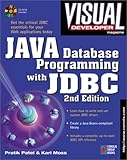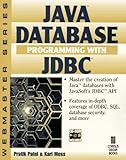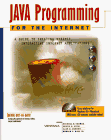Pratik Patel
Developer Advocate @ Azul Systems
Pratik Patel is a Java Champion and developer advocate at Azul Systems and has written 3 books on programming (Java, Cloud and OSS). An all around software and hardware nerd with experience in the healthcare, telecom, financial services, and startup sectors. He's also a co-organizer of the Atlanta Java User Group and North Atlanta JavaScript meetup, frequent speaker at tech events, and master builder of nachos.
Presentations
As an architect you're often working at a high level on projects, thinking of architectural concerns such as distributed applications, CI/CD pipelines, inter-team APIs, and setting standards. Code quality affects everything that a software architect needs to work on - from a small way to a big way.
We typically look at 6 Code Quality Areas:
Readability
Flexibility
Reusability
Scalability
Extendibility
Maintainability
In this talk, we'll look at techniques and tools for managing code quality. Our goal as architects is to maximize the manageability of code, consider different coding paradigms and their effect on the six areas, and how to create habits and processes to ensure long term code viability. We'll take a couple of sidebars on performant vs manageable code and OO vs Data Oriented coding. We'll look at tools for doing static analysis vs dynamic analysis.
Serverless doesn’t mean there are no servers. It’s a metaphor for a way of building applications.
In this presentation, we'll start with a short introduction to Serverless Cloud Functions and what it means to developers, and why it's important to understand this technology. We will discuss how serverless fits into the world of Microservices, and examine the pyramid of application development and deployment. We’ll put on our architect hat, and also look at Serverless options and how it impacts applications architecture.
Books
Visual Developer Java Database Programming with JDBC, 2nd Edition: The Essentials for Developing Databases for Internet and Intranet Applications
by Pratik Patel and Karl Moss
- Java Database Programming with JDBC by Pratik Patel and Karl Moss is an updated edition of the authors' guide to the Java Database Connectivity (JDBC) standard for database programming under Java. While the original edition was perhaps geared more to those developers who needed to write their own JDBC database drivers, a fairly arduous task, this new edition provides more background information on database connectivity issues in Java and so will be even more useful to the casual or intermediate programmer. After a general introduction to JDBC and Structured Query Language (SQL), useful even to beginning programmers, the authors start by building a simple database-aware applet. New chapters on "servlets," Java components that run on the server-side and manage database operations, as well as a general discussion of middleware technologies are particularly good. Database access for JavaBean components (from Sun Microsystems JDK 1.1) is also discussed, including working code for two database-aware beans. This book also includes a quick introduction to the Java language (which will only be helpful if you already know C/C++), a detailed reference for the JDBC API, and a working example of a text-based JDBC driver. Though this book is still oriented toward the JDBC driver developer, the authors now provide enough general discussion of JDBC architectural issues to make it worthwhile to any programmer who needs to ramp up on what JDBC is and what capabilities it offers.
Java Database Programming with JDBC: Discover the Essentials for Developing Databases for Internet and Intranet Applications
by Pratik Patel and Karl Moss
- Java Database Programming with JDBC by Pratik Patel and Karl Moss is an updated edition of the authors' guide to the Java Database Connectivity (JDBC) standard for database programming under Java. While the original edition was perhaps geared more to those developers who needed to write their own JDBC database drivers, a fairly arduous task, this new edition provides more background information on database connectivity issues in Java and so will be even more useful to the casual or intermediate programmer. After a general introduction to JDBC and Structured Query Language (SQL), useful even to beginning programmers, the authors start by building a simple database-aware applet. New chapters on "servlets," Java components that run on the server-side and manage database operations, as well as a general discussion of middleware technologies are particularly good. Database access for JavaBean components (from Sun Microsystems JDK 1.1) is also discussed, including working code for two database-aware beans. This book also includes a quick introduction to the Java language (which will only be helpful if you already know C/C++), a detailed reference for the JDBC API, and a working example of a text-based JDBC driver. Though this book is still oriented toward the JDBC driver developer, the authors now provide enough general discussion of JDBC architectural issues to make it worthwhile to any programmer who needs to ramp up on what JDBC is and what capabilities it offers.
Java Programming for the Internet: A Guide to Creating Dynamic, Interactive Internet Applications
by Pratik R. Patel, Alan D. Hudson, and Donald A. Ball
- Enables readers to master the Java programming language for internet applications while expanding the scope of online development, and the accompanying CD contains powerful sample applets and a copy of Netscape Navigator. Original. (Intermediate).



